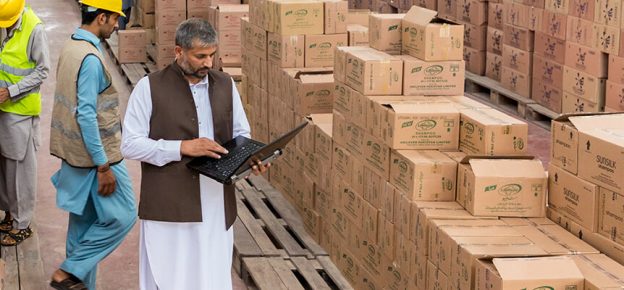Businesses operating in Pakistan confront a myriad of obstacles including inadequate infrastructure, energy deficits, political volatility, corruption, restricted financial access, skill shortages, market fragmentation, intricate tax systems, security risks, and environmental concerns.
Resolving these challenges necessitates cooperative endeavors from both the public and private sectors, involving policy enhancements, infrastructure investments, governance fortification, and the creation of a more favorable business environment. There are also some notable challenges and problem areas that need to be considered.
INFRASTRUCTURE
Pakistan’s infrastructure deficit is significant, with the World Bank estimating that the country needs to invest around $31 billion annually in infrastructure to bridge the gap. Inadequate infrastructure can result in productivity losses of up to 3.5% of GDP annually.
Energy Shortages: Pakistan faces a substantial energy shortfall, with peak electricity demand exceeding supply by around 5,000 to 7,000 megawatts. The energy crisis results in economic losses estimated at approximately 2% to 4% of GDP annually.
POLITICAL INSTABILITY
Pakistan has experienced periods of political instability, which can deter foreign direct investment (FDI) and disrupt business operations. The country ranked 134th out of 190 countries in the World Bank’s Ease of Doing Business Index in 2020.
CORRUPTION & BUREAUCRACY
Corruption is widespread in Pakistan, with the country ranking 120th out of 180 countries in Transparency International’s Corruption Perceptions Index. Bureaucratic red tape and inefficiencies contribute to delays in obtaining permits and licenses, impacting business operations.
ACCESS TO FINANCE
According to the World Bank, only around 7% of adults in Pakistan have access to formal financial services. The credit gap for small and medium-sized enterprises (SMEs) in Pakistan is estimated to be around $3.6 billion.
SKILL SHORTAGE
Pakistan faces a skills gap across various sectors, with the World Economic Forum’s Human Capital Index ranking the country 134th out of 157 countries. Around 23 million children in Pakistan are out of school, contributing to the skills shortage.
INFRASTRUCTURE FOR INNOVATION
Pakistan lacks a robust innovation ecosystem, with only a few incubators and accelerators in operation. Research and development spending in Pakistan is relatively low, accounting for around 0.29% of GDP.
TAXATION & REGULATORY ENVIRONMENT
Pakistan has a complex tax system, with a high corporate tax rate of 29%, which can deter investment. Compliance with tax regulations can be challenging, with tax evasion estimated to be around 70% of total tax liabilities.
MARKET FRAGMENTATION
Pakistan’s market is fragmented, with around 60% of the population residing in rural areas. Cultural and linguistic diversity presents challenges for businesses in reaching customers effectively across different regions.
ENVIRONMENTAL SUSTAINABILITY
Pakistan faces significant environmental challenges, including air pollution levels that exceed World Health Organization (WHO) guidelines by up to five times in some cities. The economic cost of environmental degradation in Pakistan is estimated to be around 6% of the GDP annually.
In the current environment in Pakistan, addressing challenges such as infrastructure deficits, energy shortages, political instability, corruption, and skill shortages requires a multifaceted approach involving government policies, private sector initiatives, and civil society engagement. Solutions include investment in infrastructure, diversification of energy sources, governance reforms, skills development, streamlining regulatory processes, improving access to finance, promoting innovation and entrepreneurship, implementing environmental sustainability measures, enhancing regional cooperation, and fostering community engagement and social responsibility. Collaborative efforts from stakeholders across sectors are crucial for creating a conducive business environment and fostering sustainable economic development in Pakistan.
Challenges for Businesses in Pakistan
on 29/02/2024








